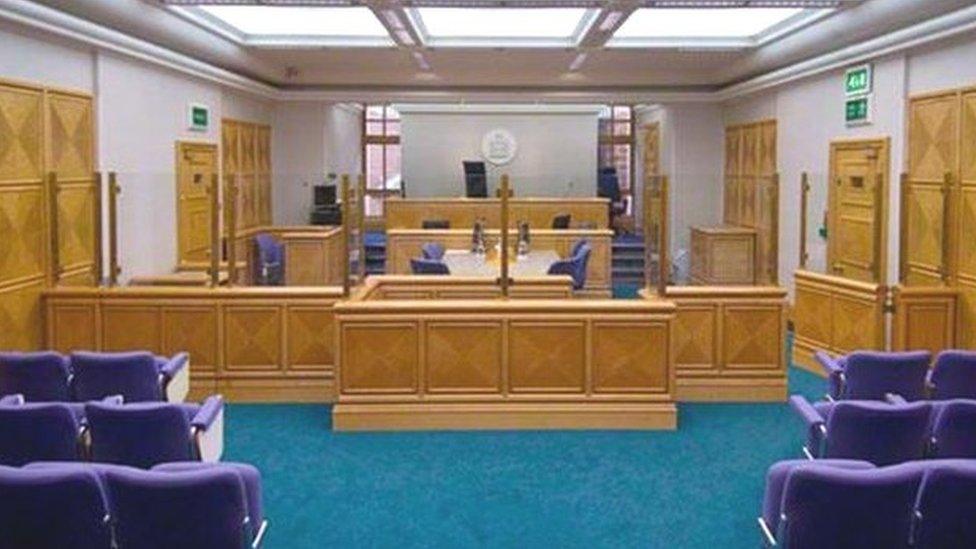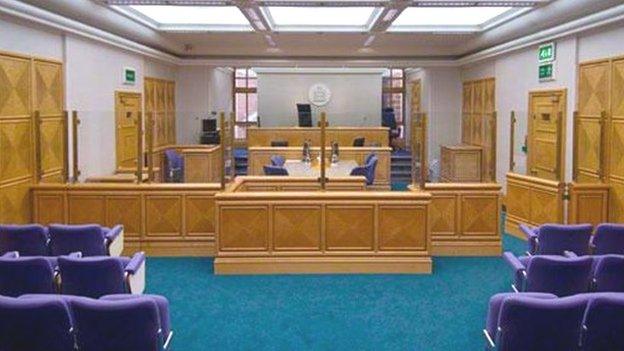New approach to sex sentencing rules in Scotland
- Published

Sentencing for rape, sexual assault, and indecent images of children will be considered separately
Plans to make sentencing in sex cases more consistent and transparent have been set out by a senior judge.
Separate guidelines will look at rape, sexual assault, and indecent images of children rather than one covering all offences.
The Scottish Sentencing Council said the approach would cut down the time it takes to issue the first guidance.
But the focus on sex offences will delay work in other areas of sentencing such as environmental crime.
Calls for greater transparency in sex cases were made early this year after a teenager walked free from court despite being found guilty of sexually assaulting a young girl.
He was found guilty of repeated sexual assaults but was granted an "absolute discharge" by a sheriff.
The case led to calls at Holyrood for new guidelines in the area to be prioritised.
The volume of sexual offence cases coming before the Scottish courts has increased in recent years.
Last year, the council, which was set up in 2015, committed to developing guidelines on sexual offences.
'Multiple guidelines'
It has now confirmed its intention to produce multiple guidelines on specific sexual offences, rather than one guideline covering all offences.
The proposals were confirmed by Scotland's second most senior judge, the Lord Justice Clerk Lady Dorrian in a letter to Justice Secretary Humza Yousaf.
Lady Dorrian, who chairs also the council, wrote: "Given the wide-ranging nature of sexual offending, the council has decided to develop multiple guidelines focusing on particular sexual offences, rather than a single guideline covering all offences.
"This will allow each topic to be given in-depth consideration, and for the first guidelines on sexual offending to be produced more quickly.
"Taking into account the information we have gathered to date, the council has decided to begin its work on sexual offences by developing sentencing guidelines in relation to rape, sexual assault, and indecent images of children."
The decision to prioritise guidelines on sexual offences means the council is having to delay the development of guidance on environmental and wildlife crime.
'Listened carefully'
Lady Dorrian cautioned that it would take time for the sexual offences guidelines to be developed.
"We recognise the considerable interest in sentencing sexual offences, and we have listened carefully to views expressed by the public, judiciary, victim support organisations, the Scottish Parliament and others in considering how best to proceed," she said.
"Our priorities are always under review as new areas of work develop and, on balance, we consider that guidelines on sexual offences should take precedence over certain other areas of work at present.
"Specifically, we intend to de-prioritise the development of a guideline on environmental and wildlife offences during the current business plan period, in order to allow more resources to be allocated to work on sexual offences.
"However, our plans for issuing guidelines on the sentencing process, the sentencing of young people, and causing death by driving remain unchanged."
Judges and sheriffs have to take official guidelines into account when sentencing offenders in a relevant case.
Guidelines are put in place with a view to ensuring sentences are consistent, fair and proportionate.
- Published26 November 2018

- Published19 October 2015
